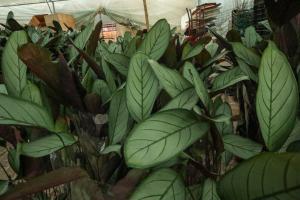Introduction
PFOS, or perfluorooctanesulfonic acid, is a chemical substance that has been linked to numerous health problems in humans and animals. It is commonly found in drinking water sources and has been known to contaminate crops and vegetables grown in soil that has been treated with contaminated water. This raises concerns about whether plants grown with PFOS-contaminated water are safe to eat. In this article, we will examine the potential risks associated with consuming such plants.
The dangers of PFOS contamination
PFOS is a toxic agent that can affect the human body in a number of ways. Exposure to this chemical can cause damage to the liver and kidneys, as well as the immune and reproductive systems. Moreover, PFOS has been linked to an increased risk of cancer, thyroid disease, and other serious health problems. Given these risks, it is important to take steps to avoid exposure to this dangerous chemical.
The impact of PFOS on crops
When PFOS-contaminated water is used for irrigation, plants can absorb the chemical through their roots. This can lead to the accumulation of PFOS in their leaves, fruits, and other edible parts. Studies have shown that this can result in high levels of PFOS in crops like lettuce, tomatoes, and other vegetables. Moreover, the presence of PFOS in soil can negatively affect the nutrient content, growth, and development of plants.
The risks of consuming plants grown with PFOS-contaminated water
Given the well-documented risks associated with PFOS exposure, it is understandable that people may be hesitant to consume crops grown with contaminated water. While there is still much research to be done in this area, there is evidence to suggest that consuming such plants can indeed pose a health risk. However, the extent of this risk will depend on a number of factors, such as the level of contamination, the type of crop, and the frequency of consumption.
Precautions and recommendations
To minimize the potential risks associated with consuming plants grown with PFOS-contaminated water, there are a few precautions that one can take. First, it is important to avoid consuming crops from areas that have been heavily contaminated with PFOS. It is also recommended to wash all fruits and vegetables thoroughly before eating them, in order to remove any traces of the chemical. Additionally, it is important to properly dispose of any products that have been exposed to PFOS-contaminated soil or water.
Conclusion
In conclusion, the question of whether plants grown with PFOS-contaminated water are safe to eat is a complex one. While there is evidence to suggest that consuming such crops can pose a health risk, the extent of this risk is still not fully understood. Until more research is done in this area, it is important to take precautions to avoid exposure to this dangerous chemical. By being vigilant and informed about the potential risks, we can help protect our health and the health of our communities.

 how many times do yo...
how many times do yo... how many planted tre...
how many planted tre... how many pine trees ...
how many pine trees ... how many pecan trees...
how many pecan trees... how many plants comp...
how many plants comp... how many plants can ...
how many plants can ... how many plants and ...
how many plants and ... how many pepper plan...
how many pepper plan...






























